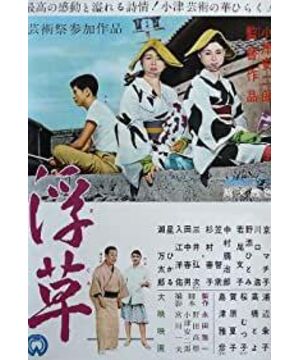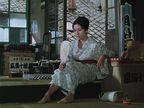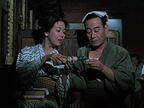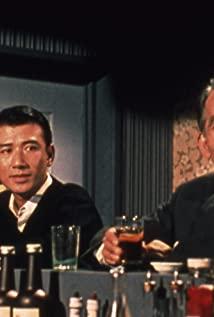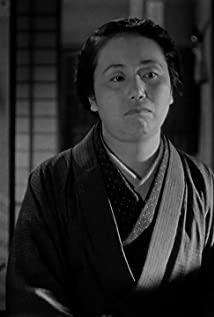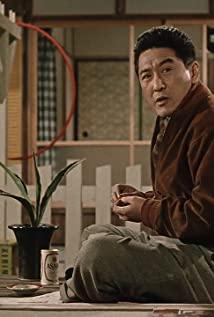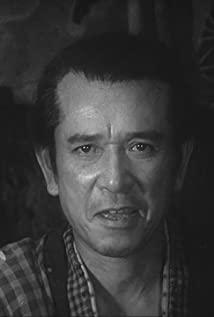The day before yesterday, I dreamed that I was passing by an island in a boat. The boat ran aground in the crowd of festival parade. I woke up and thought: What a beginning of floating grass! So read it again.
Ozu is good at expressing symbolic meanings in the language of the camera lens, such as the imitation in the fishing scene of the father and son, the imitation of two kabuki playing mirror dressing, the imitation of the grandson's grandfather crying because of parting, the confrontation between the male protagonist and the lover in the heavy rain, and finally lighting a cigarette The reconciliation of... the connection and conflict, intimacy and alienation of the characters are revealed through the subtle symbolic lens structure, which is the charm and beauty of the art form of film.
Taking a heavy rain as the dividing point, the tone of the movie changes from joyful and bright to sentimental and unstable, which means that it is faced with a reconstruction of order, and finally a new order has indeed been formed. The male protagonist reconciles with his lover and returns to the wandering life, and regained the humble heartless happiness of the little people, and behind this is the ultimate compassion.
In Ozu's films, the family is an eternal foothold, and the order of the family is also an imitation of the human order, which reflects the abstract and grand theme. At the same time, Ozu completes the shaping of the characters by weakening the plot, and the changes of the characters are also an imitation of fate. Because of the perception of the ups and downs, separation, and impermanence of fate, I cannot bear to judge the merits of each character, nor does it even intend to judge the pros and cons of a certain era, the glory and guilt of human civilization.
"Eternity is before, our soul is love, even after repeated partings."
View more about Floating Weeds reviews


